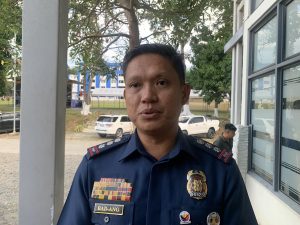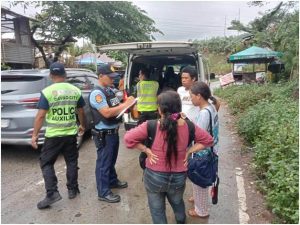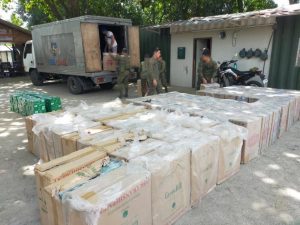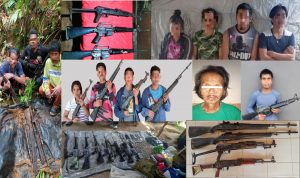The city’s residual wastes that end up in the sanitary landfill increased from 602 tons a day in 2017 up to 614 tons a day in 2019.
According to the City Hall report presented during the Pakighinabi, a forum held at the Ateneo de Davao last Friday, household wastes composed a significant volume of garbage in the landfill, with 80% of the daily waste collection.
The forum which formed part of the Eco Summit 2020, saw both government officials and environmentalists agree that the problem needs to be addressed urgently.
Both sides also conceded that the sanitary landfill in Barangay Carmen, Baguio district, already reached its full capacity and that the city has a looming waste management problem.
The local government is working on the Waste-to-Energy (WTE) project as part of its 10-year solid waste management plan to solve the problem on garbage. The P2.5 billion project, said to have already been approved by the Department of Environment and Natural Resources (DENR), is expected to start on the third quarter of this year.
WTE is the conversion of wastes into heat, electricity, or fuel through technology. It is expected to reduce waste and extend the life of landfills, create jobs and opportunities, and generate an additional 11 megawatt of power for the city.
However, environmentalists question the WTE initiative.
“False solution,” is how Kenneth Felices, partnership building officer of Interface Development Interventions (IDIS), and Kim Fabular, program officer of Ecoteneo, call the WTE project during the Kapehan sa Dabaw last Jan. 20.
They said that the WTE is a form of incineration that is against RA 9003 or Ecological Solid Waste Management Act. Aside from that, it is hazardous to the health, costly, and it is not a sustainable solution. It was supported by the studies they presented during the Pakighinabi, four days after their statement was released.
They contend that resolving the waste problem of the city entails a sustainable Ecological Solid Waste Management practices such as reduction-at-source, segregation-at-source, materials recovery, and recycling/upcycling.
Environmentalists are still lobbying against the project.
The Sustainable Davao Movement said they will continue to call for the halt of the project and for the community to observe eco-waste management and achieve a Zero Waste Davao.
Aside from the WTE project, the local government enforces the green ordinance.
Currently, there are model barangays that are complying with the ordinance namely, Barangay Hizon, Barangay Catalunan Grande, Barangay Gumalang, and Barangay Tacunan.





